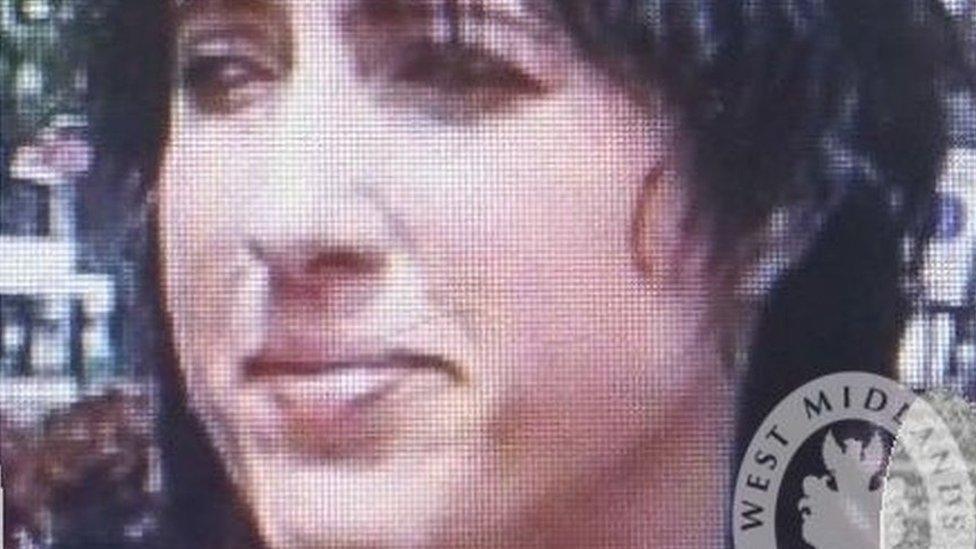'Beautifully human' Julia Rawson 'deserved so much more'
- Published
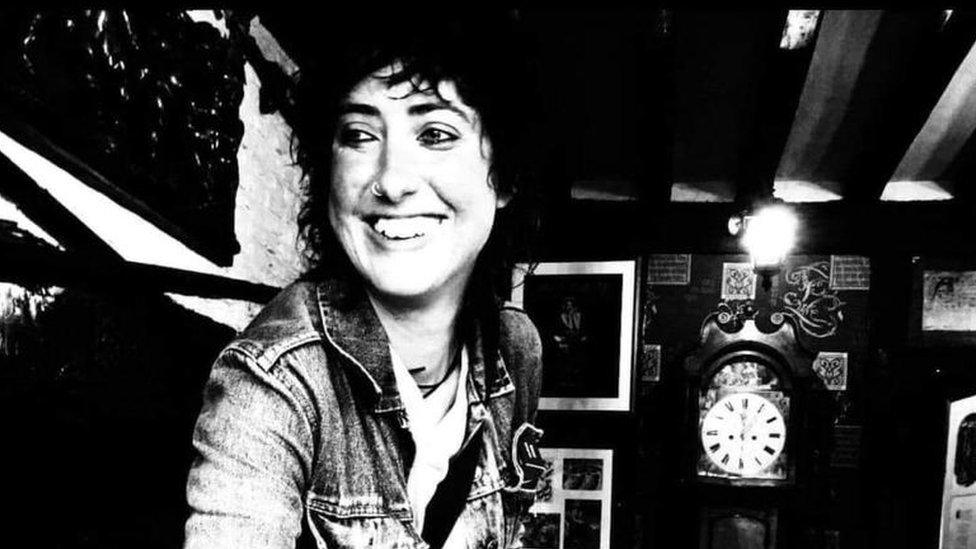
Julia Rawson was "an eccentric and vibrant woman - the epitome of a true artist", her friend Charlotte said
Julia Rawson lived life to the full - but her murder at the hands of a man obsessed with serial killers left her defined as a victim of macabre acts. The reality was a fun-loving and talented woman whose loss rocked those who loved her. Here they remember their friend.
Her face was usually spattered with paint - a hint she had been following artistic pursuits; a favourite pastime.
"A happy child is a mucky child," Julia Rawson would say, should people point out the mess.
Her friend Debbie Maskell recalled: "She was like a big kid - it was like she never grew up. Everything was just 'wow - look at that'."
They were 18 when they met. Julia - or Ju, as she was known - was a student at Stafford Art College, and Debbie's friend Elaine Higginson had introduced Julia as her new partner.
The three were inseparable. And it was usually Julia, with her seemingly endless energy, who instigated a lot of their fun.
"She was really full of life," said Debbie. "She used to drag us out, make us do things. She was like an excited schoolgirl."
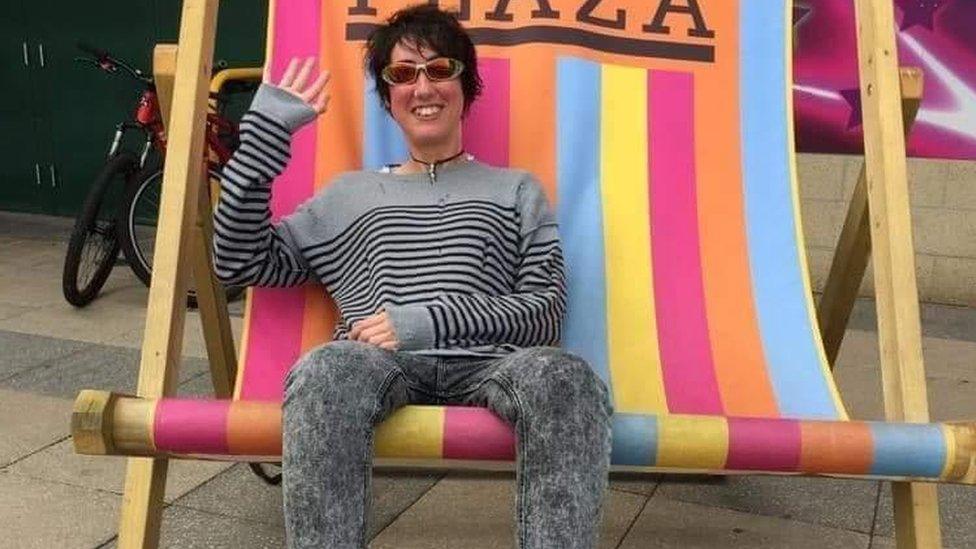
Julia's friends said she had a childlike sense of adventure, and loved taking them along for the ride
Whether it was socialising in the pubs of home town Dudley, running her popular market stall, or exhibiting her paintings, Julia did it with a smile.
"If there was a word to describe her, it would be 'sunshine'," said friend Steve Gibbons.
"If Ju walked into the room, you knew you were in for a good night. She was a pleasure to be around."
Music was among her passions. She loved The Strokes, and when she heard they were playing a gig in London, she bought tickets and surprised Elaine with them last year.
The pair spent months looking forward to the show, but it was one they would never make. The band performed on 25 May 2019 - 14 days after Julia went missing.
Elaine, left distraught by Julia's death, has felt unable to go to a concert without her.
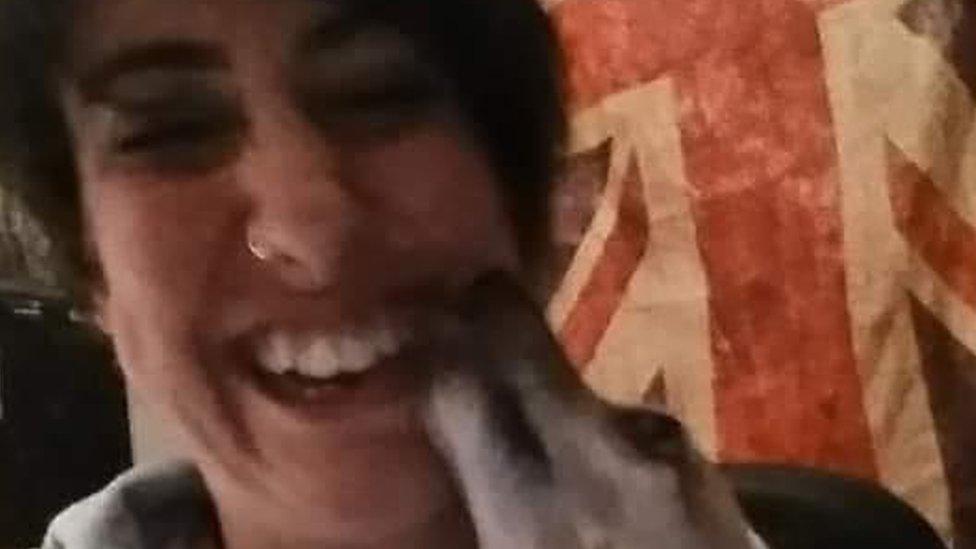
Julia with her dog she called Mitzy Moo
Julia was murdered by Nathan Maynard-Ellis and his partner David Leesley. The former was fascinated with decapitation and horror movies, and the pair hid Julia's dismembered body parts in undergrowth. They were jailed on Monday. Another reminder of grim detail where the person behind the victim can become lost.
It was distressing for Julia's friends to read reports into her death.
During the October trial it was said that while a lesbian, she was known to be "flirtatious with men while drunk". And it was this, at least according to the hearing, that led her to talk to Maynard-Ellis in a Dudley pub on the night she disappeared.
The truth is no one knows why she decided to go back to his flat in Tipton after meeting the stranger by chance. But those who knew Julia recall an outgoing and friendly nature.
"She'd speak to anyone," said Debbie. "She could be very trusting, but she'd have her guards up, usually."
Others talk of Julia's kindness, and remember a person ready with a pep talk for anyone in need of a boost. Among them was Charlotte Almanzi, whom Julia encouraged to start a business despite a health setback.
"She encouraged me to get out there and make a difference - she believed in people," Charlotte said. "Her willingness to connect with people in jest and smiles is what we all loved."
It is why Charlotte remembers her friend as "beautifully human".
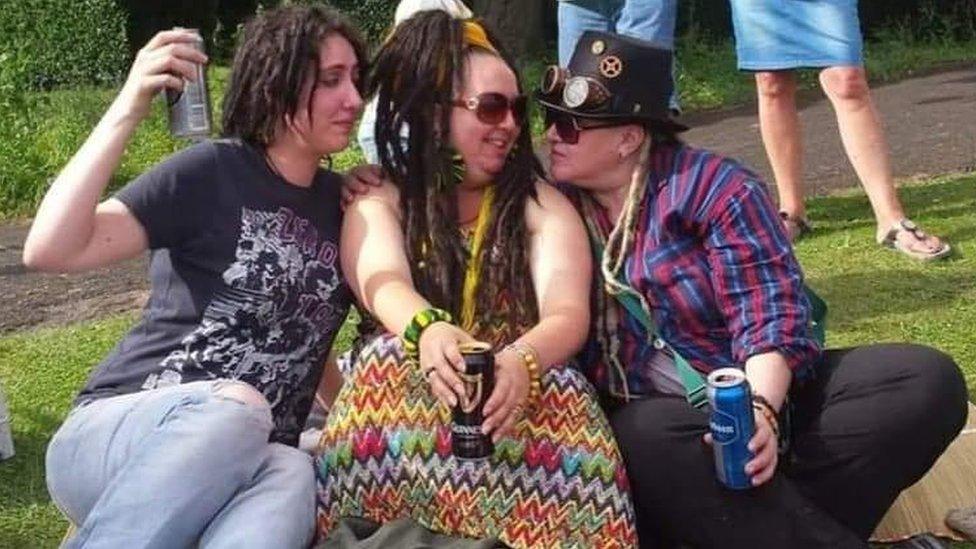
Julia, Debbie and Elaine were inseparable from the moment they met at 18
Charlotte's mum Norma de Wolf echoed the sentiments. "[Julia] was larger than life. She'd have no qualms walking into a pub on her own because she knew everybody - they all knew her from the market and the shop."
The ventures, both in Dudley, offered candles and incense, along with pagan statues and artefacts. Julia was deeply interested in the religion and it was through monthly social meetings on the topic that she met Steve Gibbons.
"You'd always know Julia was there because she'd come and put her head on your shoulder," he said. "She'd always greet people with a hug - she was just a very happy, tactile person."
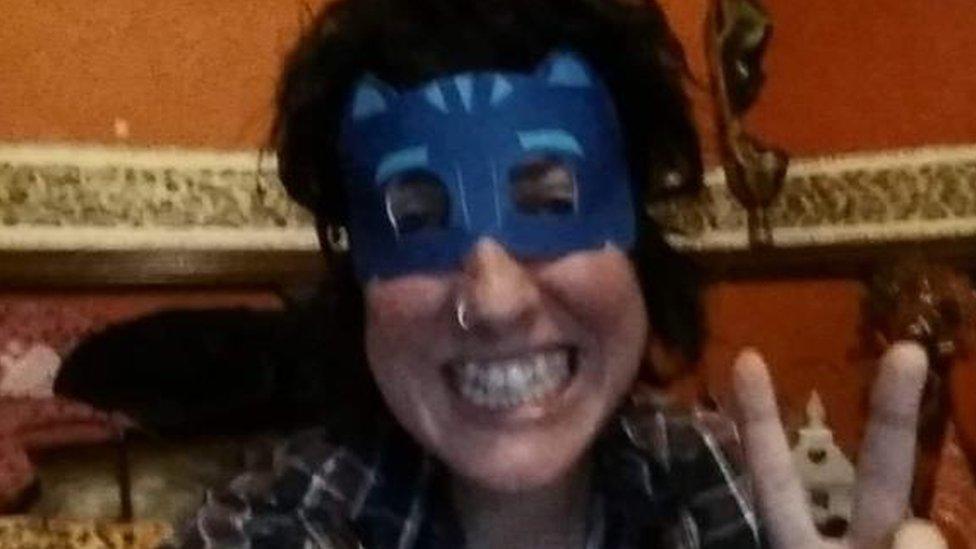
Julia on New Year's Eve 2018, wearing a Cat Boy mask belonging to Debbie's daughter
When Julia went missing and no one saw her for a couple of days, Debbie had an "awful, sinking feeling".
She said: "I knew something really bad had happened. I knew she wouldn't let Elaine worry."
Seeing Julia's flat from the street was painful. "I'd look up at the window and I would see her paintbrushes in a little sun catcher," Debbie said. "I'd just look at them and be like 'where are you'?"
Debbie still finds it difficult to walk past the site.
"Julia deserved so much more than [what happened]. She was a bright light to everyone. You'd never forget her if you saw her. She was so full of life, and we are lost without her."
Elaine, meanwhile, feels as though something of herself has gone.
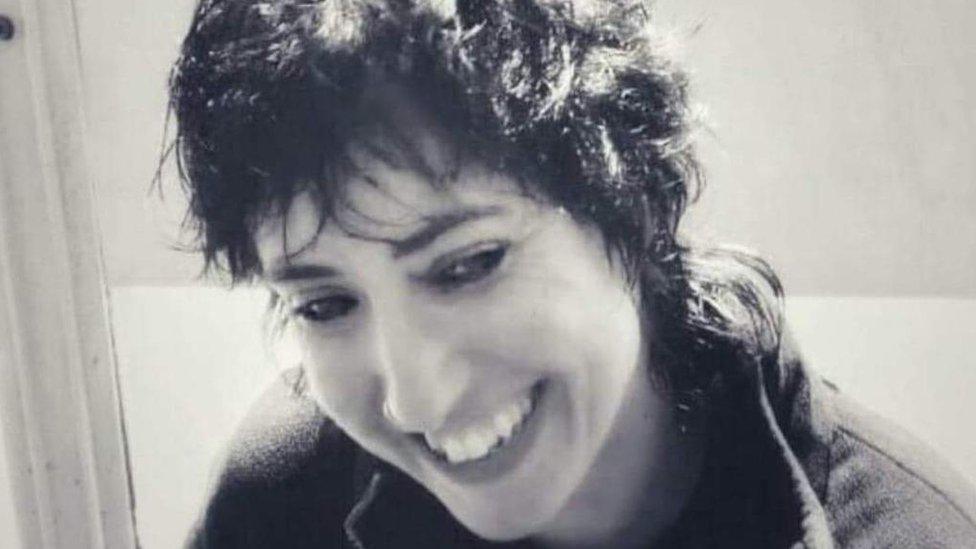
Julia was "beautifully human", a friend said
"They killed a part of me too," Elaine said. "Not a day goes by when I'm not thinking about her. She was my world. She took me out of myself.
"It's like that quote - I loved her in colours that don't exist. And now it's the same how much I miss her.
"Not a day goes by [without it hitting] me that I'll never see her again, and it just knocks me for six."

Follow BBC West Midlands on Facebook, external, Twitter, external and Instagram, external. Send your story ideas to: newsonline.westmidlands@bbc.co.uk, external
- Published21 December 2020
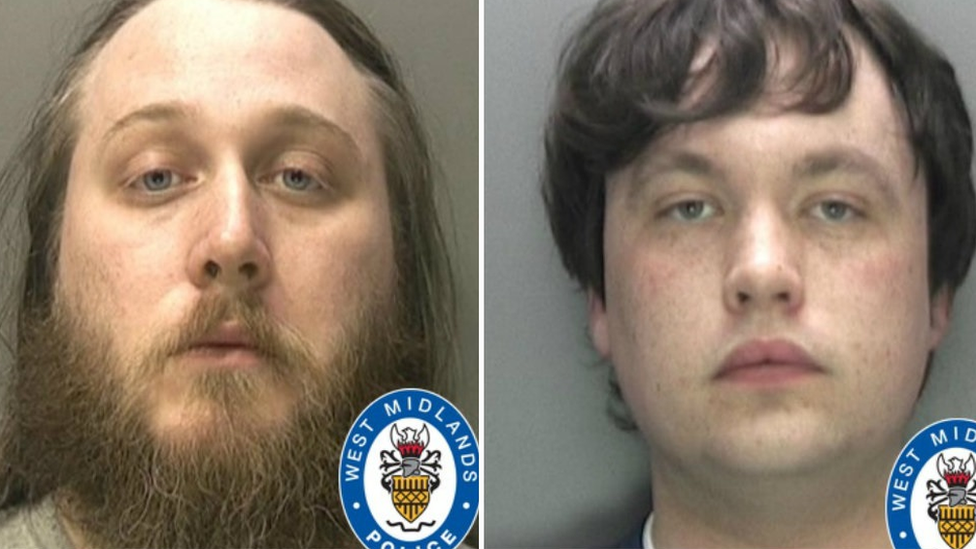
- Published9 November 2020
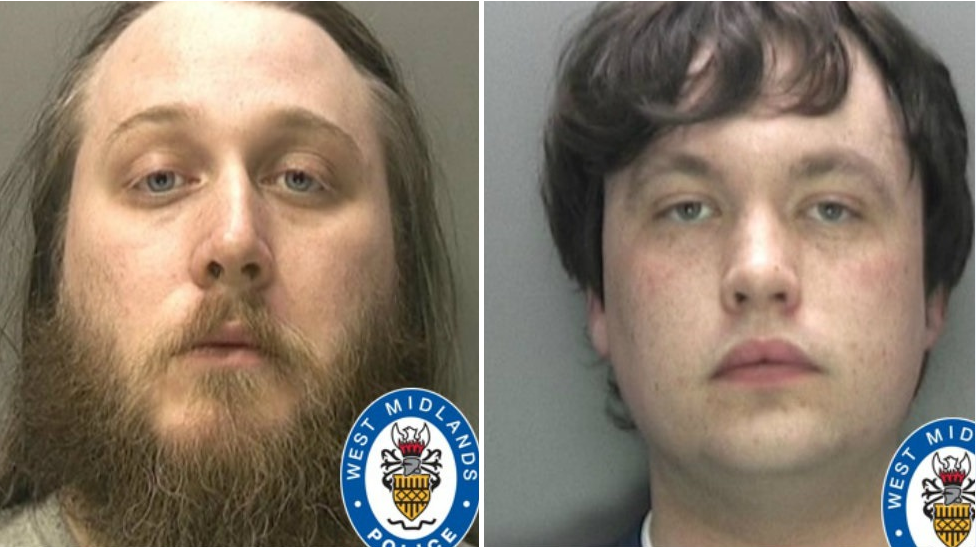
- Published8 October 2020
